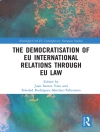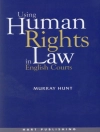What might happen if a woman’s right to vote is seen as coequal with her right to be elected?
Why are other countries so much better than the United States at electing women to office? In her lead essay in this anthology, Jennifer Piscopo argues that women in the United States haven’t fought for the right to be elected. A comparative political scientist, she shows that suffrage movements around the world often focused not only on the right to vote, but also the right to stand for office. As a result, when these movements succeeded, they saw the right to be elected as a positive right, enabling nationwide-efforts to both encourage and actively recruit female candidates. In her exploration of positive and negative rights in the United States, Piscopo explores what might happen if a woman’s right to vote is seen as coequal with her right to be elected, considering, among other things, how our definitions of representational government could both change and restore public trust in democracy.
قائمة المحتويات
Jennifer Pispcopo. Respondents: Suzanne Dovi, Kerry Haynie, Chris Karpowitz, Donna Edwards, Emily Cain, Jocelyn Benson, Julie Suk, Zinga Fraser, Marie Berry and Milli Lake












